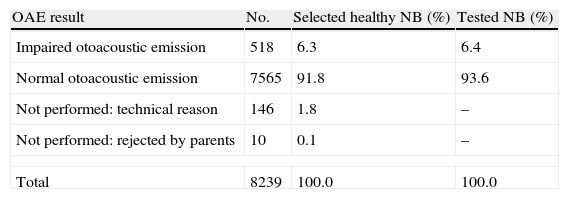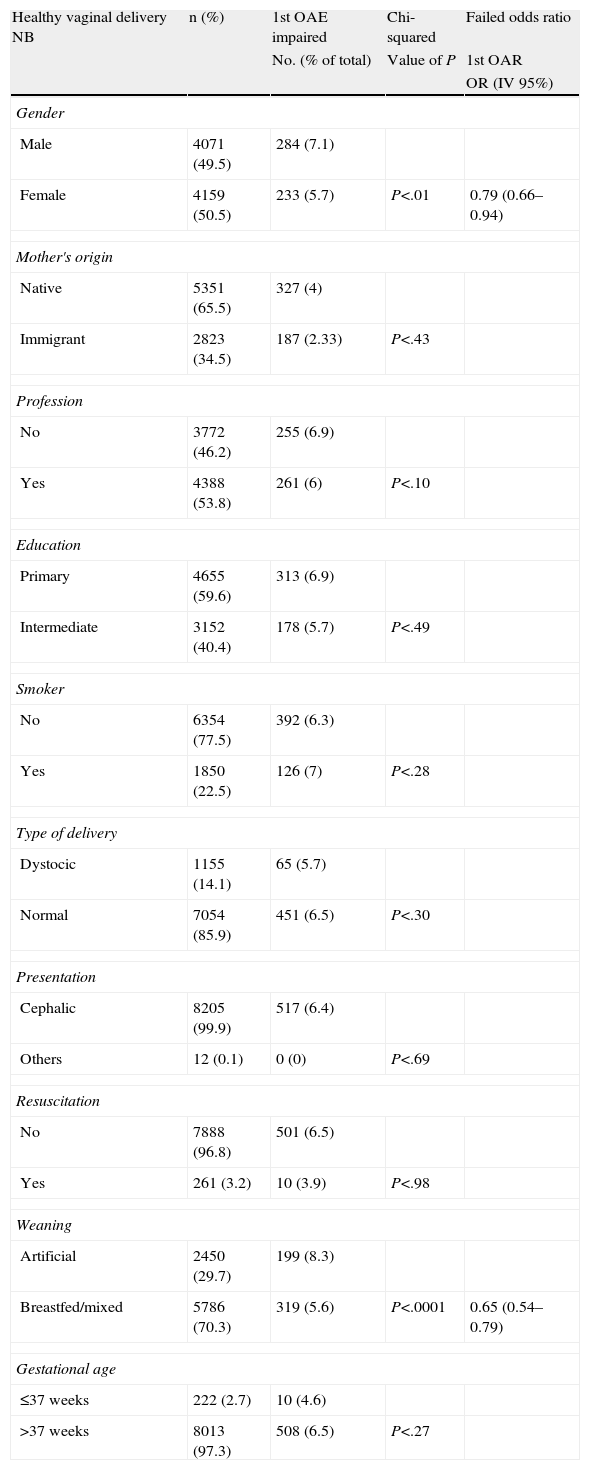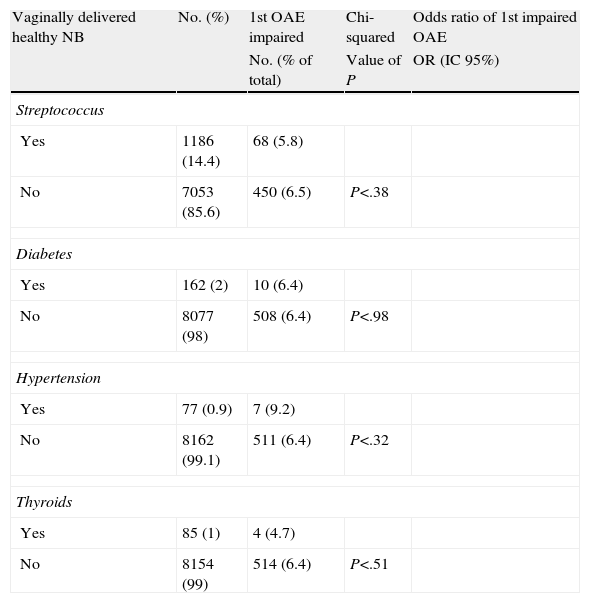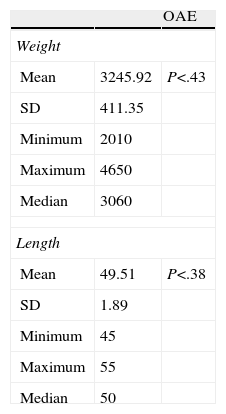Most hospitals perform neonatal hearing screening because it is a very useful procedure. Otoacoustic emissions are an ideal technique for this screening. We analyse the possible influence on screening results of some perinatal factors.
Materials and methodsWe collected retrospective data from 8239 healthy newborns delivered vaginally at the maternity ward of our hospital. We compared multiple perinatal factors vs the results of otoacoustic emissions performed within the first 48h of life, before discharge.
ResultsA total of 6.4% of newborns had an abnormal response and failed the screening. Univariate and multivariate analysis showed a significant (P<.0001) positive relationship between breastfeeding and normal otoacoustic emissions (OR: 0.65). Another, less significant factor was female gender. The remaining variables, including origin, education or employment status of the mother, maternal smoking, dystocic delivery, presentation, need for resuscitation, preterm labour (34–36 weeks), weight, length and frequent maternal pathology, such as streptococcus detection, hypothyroidism, hypertension or diabetes, were not significant.
ConclusionsBreastfeeding was the most important factor related to a normal response in otoacoustic emissions. It may improve final results and reduce the number of neonates who need to be rescheduled for a repeated test, as well as the associated anxiety and the possibility of losing patients during follow-up. These are major problems in neonatal hearing screening.
Actualmente se hace cribado neonatal de hipoacusia universal en la mayoría de centros, muchos mediante otoemisiones acústicas. Analizamos los factores perinatales que podrían influir en el resultado de la prueba.
Material y métodosSe recogen retrospectivamente los datos de 8.239 recién nacidos sanos de la maternidad del hospital, nacidos por parto vaginal. Se analizan múltiples factores perinatales frente al resultado de las otoemisiones sobre las 48h de vida.
ResultadosEl 6,4% tuvieron otoemisiones alteradas. El estudio univariante (Chi-cuadrado) y multivariante resulta muy significativo (p<0,0001) (OR: 0,65 alterada) para la lactancia materna como factor positivo relacionado con una otoemisión normal. Otro factor menos significativo es el sexo femenino. No resultaron significativos el origen, formación o trabajo de la madre, consumo de tabaco materno, parto distócico, presentación, necesidad de reanimación, ser pretérmino tardío (34–36 semanas), peso, talla, ni enfermedad materna frecuente como colonización por estreptococo, hipotiroidismo, diabetes o hipertensión.
ConclusionesLa lactancia materna es el factor positivo más importante relacionado con la obtención de una otoemisión normal, esto es crucial puesto que podría mejorar el resultado final del cribado auditivo y reducir los niños que se deben volver a citar, con la ansiedad familiar y la sobrecarga asociada, al tiempo que reduce el riesgo de perder al paciente durante el seguimiento.
Artículo
Comprando el artículo el PDF del mismo podrá ser descargado
Precio 19,34 €
Comprar ahora









